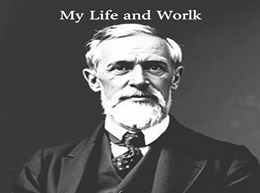Speak, Memory

An In-Depth Review of "Speak, Memory": Nabokov's Literary Memoir
Vladimir Nabokov’s Speak, Memory is a captivating memoir that offers readers a glimpse into the early life and formative years of one of the 20th century’s most renowned literary figures. Written with Nabokov’s characteristic eloquence and attention to detail, this autobiography is as much a work of art as it is a recounting of his past. In this review, we will explore the key themes, stylistic elements, and memorable moments that make Speak, Memory a timeless masterpiece.
Nabokov’s World
Vladimir Nabokov, best known for his novel Lolita, presents a richly detailed account of his life from his aristocratic childhood in pre-revolutionary Russia to his emigration to the United States. Speak, Memory is not a conventional autobiography; rather, it is a series of essays that blend memoir with lyrical prose, reflecting Nabokov’s unique narrative style.
Example: The Opening Scene
The memoir begins with a vivid description of Nabokov’s earliest memory: “The cradle rocks above an abyss, and common sense tells us that our existence is but a brief crack of light between two eternities of darkness.” This poetic and philosophical opening sets the tone for the entire work, indicating that readers are about to embark on a journey through memory and imagination.
The Elegance of Childhood Recollections
One of the most enchanting aspects of Speak, Memory is Nabokov’s portrayal of his childhood. Growing up in a privileged family, Nabokov had access to an array of experiences that he recounts with nostalgia and a keen eye for detail.
Example: The Butterfly Collection
Nabokov’s passion for butterflies, which would later influence his scientific work, is beautifully described. He writes about the meticulous care with which he collected and studied butterflies, a hobby that provided him solace and a sense of wonder. His descriptions of chasing butterflies in the Russian countryside are imbued with a sense of freedom and joy, capturing the essence of his youthful exuberance.
The Impact of Historical Events
Nabokov’s memoir is not just a personal account but also a reflection of the broader historical context of his time. The Russian Revolution and the subsequent civil war had a profound impact on his family, leading to their eventual exile.
Example: The Fall of the Nabokovs
The upheaval of the Russian Revolution is poignantly depicted through the lens of Nabokov’s personal loss. He describes the confiscation of his family’s estate and their forced departure from Russia with a mix of sadness and resilience. This historical backdrop adds depth to his narrative, showing how personal and political histories intertwine.
The Art of Memory and Language
Nabokov’s mastery of language is on full display in Speak, Memory. His prose is rich, intricate, and filled with metaphors that elevate his recollections to a form of art. The memoir is not just a recounting of events but a meditation on the act of remembering itself.
Example: The Metaphorical Language
Consider Nabokov’s description of memory: “Memory can restore to life everything except smells, although nothing revives the past so completely as a smell that was once associated with it.” This reflection on the sensory limitations of memory demonstrates his ability to transform a simple observation into a profound insight, highlighting the fragility and power of human recollection.
Personal Relationships and Influences
The memoir delves into Nabokov’s relationships with his family, particularly his parents and siblings. His admiration for his father, a prominent liberal politician, and his affectionate bond with his mother are recurring themes that provide emotional depth to the narrative.
Example: The Portrait of His Father
Nabokov’s father emerges as a heroic figure in his memoir. He writes with admiration about his father’s dedication to political reform and his untimely assassination. This portrayal is filled with respect and love, painting a vivid picture of a man who significantly influenced Nabokov’s values and worldview.
Literary Influences and Early Writing
As a budding writer, Nabokov was influenced by the literature of his time and the educational opportunities afforded to him by his privileged upbringing. His early forays into writing and his eventual decision to pursue a literary career are key aspects of the memoir.
Example: The Writing Process
Nabokov recounts his early attempts at poetry and prose, often with a humorous self-awareness. He describes the painstaking process of crafting his first works and the thrill of seeing his writings in print. These passages offer valuable insights into the development of his literary style and his commitment to his craft.
Exile and Adaptation
The latter part of Speak, Memory focuses on Nabokov’s experiences as an émigré. His family’s exile took them from Russia to various parts of Europe before finally settling in the United States. This period of displacement and adaptation is crucial to understanding Nabokov’s later works.
Example: The Sense of Displacement
Nabokov’s sense of being a perpetual outsider is eloquently expressed in his reflections on exile. He writes about the cultural adjustments and the longing for his homeland with a sense of melancholy and resilience. This theme of exile permeates much of his work, adding a layer of complexity to his identity as a writer.
The Role of Memory in Shaping Identity
Throughout the memoir, Nabokov explores how memories shape our identity and perceptions of the past. His meticulous recounting of events, infused with his imaginative reconstructions, blurs the line between reality and memory, suggesting that our past is as much a creation of the mind as it is a series of factual occurrences.
Example: The Reconstructed Memories
Nabokov’s detailed descriptions often blend actual events with his own imaginative enhancements. He acknowledges the selective nature of memory, writing, “I confess I do not believe in time.” This philosophical approach to memory challenges readers to consider the fluidity of their own recollections and the stories they construct about their lives.
The Enduring Legacy of Speak, Memory
Speak, Memory is more than just an autobiography; it is a literary masterpiece that transcends the genre. Nabokov’s ability to capture the essence of his past with such poetic precision and emotional depth makes this memoir a compelling read for anyone interested in the art of storytelling and the complexities of memory.
For those who appreciate literary elegance and introspective narratives, Speak, Memory offers a rich and rewarding experience. Nabokov’s reflections on his life, his craft, and the historical context in which he lived provide a multifaceted portrait of an extraordinary mind. This memoir stands as a testament to the enduring power of memory and the written word, ensuring its place as a classic in the literary canon.
In conclusion, Vladimir Nabokov’s Speak, Memory is a beautifully crafted memoir that invites readers to reflect on their own experiences and the memories that define them. Through his eloquent prose and profound insights, Nabokov not only shares his personal history but also illuminates the universal human experience of remembering and being remembered.












